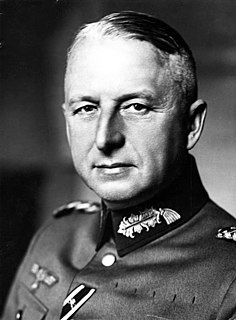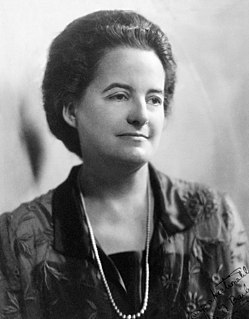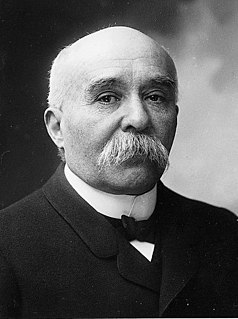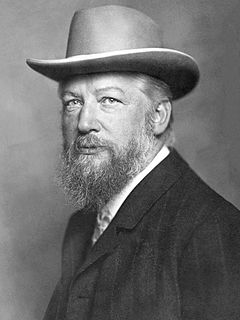Top 255 Von Hayek Quotes & Sayings - Page 5
Explore popular Von Hayek quotes.
Last updated on November 26, 2024.
I chose the American ones, more or less the last five years of the silent era, because those are the ones that aged the best in the way they tell the story. One, it's about human beings with context. It's a very classical story with feelings, with laughter, melodrama and it really works, the good ones - Murnau's American movies, John Ford's Four Sons, King Vidor's The Crowd, or the (Josef) von Sternberg movies. You can watch it now and it still works. I mean they are really, really good pieces so this is where I tried to work.
It was a figure painting class, where you had a model, and [Robert von Neumann ] would wander around and he'd come up behind someone and say, "Well, what are you trying to do?" And if you told him what you were trying to do, he would then proceed to discuss this with you and suggest things that you might look at and ways in which you could improve what you were attempting to do, etc - never worked on your painting, never touched your painting but talked extensively about what you were trying to do.
The general verdict among the German generals I interrogated in 1945 was that Field-Marshal von Manstein had proved the ablest commander in their Army, and the man they had most desired to become its Commander-in-Chief. It is very clear that he had a superb sense of operational possibilities and equal mastery in the conduct of operations, together with a greater grasp of the potentialities of mechanized forces than any other commander who had not been trained in the tank arm. In sum, he had military genius.
Wenn jemand sich in Inkarnation befindet, bietet ihm dieser Körper das Problem, das er erlernen muss oder (wenn die Evolution fortgeschritten ist) bietet den Träger, der sich für die Art der jeweiligen Aufgabe am besten eignet. Ein orientalischer Körpertyp hat eine gewisse Anzahl von Fähigkeiten, und ein abendländischer Körpertyp weist andere und, wenn ich so sagen darf, ebenso gute Eignungen auf.
Inwardness is the characteristic feature of the vegetable rather than the animal approach to existence. The animals move, migrate and swarm, while plants hold fast. Plants live in a dimension characterised by solid state, the fixed and the enduring. If there is movement in the consciousness of plants then it must be the movement of spirit and attention in the domain of vegetal imagination. (...) This is the truth that the shamans have always known and practiced. Awareness of the green side of mind was called Veriditas by the twelfth century visionary Hildegard Von Bingen.
Qian Xuesen, the father of the Chinese Space Program, studied in the United States, and he was a protégé of Theodore Von Carmen's at Cal Tech and helped start the jet propulsion laboratory there, and then he got caught up in the anti-communism wave and was accused of being a spy and was actually deported back to China where he built from nothing, their entire missile and space program. So, in a way, in a very real way, the United States in trying to protect so-called protect our secrets and throwing this guy out of the country, we helped seed and start the Chinese missile program.
In desperation I asked Fermi whether he was not impressed by the agreement between our calculated numbers and his measured numbers. He replied, "How many arbitrary parameters did you use for your calculations?" I thought for a moment about our cut-off procedures and said, "Four." He said, "I remember my friend Johnny von Neumann used to say, with four parameters I can fit an elephant, and with five I can make him wiggle his trunk." With that, the conversation was over.
On September 17, 1914, Erzberger, the well-known German statesman, an eminent member of the Catholic Party, wrote to the Minister of War, General von Falkenhayn, "We must not worry about committing an offence against the rights of nations nor about violating the laws of humanity. Such feelings today are of secondary importance"? A month later, on October 21, 1914, he wrote in Der Tag, "If a way was found of entirely wiping out the whole of London it would be more humane to employ it than to allow the blood of A SINGLE GERMAN SOLDIER to be shed on the battlefield!"
The two teachers that I had in the Art Institute who affected me the most were Kathleen Blackshear and Robert von Neumann; Kathleen Blackshear because she taught a class called design - I can't remember, design something, and in this class - it met once a week - we would do work centered around some theme, word or subject or technique or whatever, and bring it in for a three-hour discussion. And Kathleen was able, in watching and looking at our work, to direct us to all kinds of things which might relate to what we were trying to do, but she never attempted to tell us what to do.
My only supporter and comrade-in-arms was Georg Helm, who had endeavored to formulate an energetic conception of science before me and had presented his results in a treatise [Die Lehre von der Energie] exhibiting great independence of thought. But we were separated by his aversion to a realistic conception of energy. Consequently, each of us considered the other only a half ally, toward whom an attitude of caution was necessary.
Remember this moment. If we don't convince the field marshal (Fedor von Bock) to fly to Hitler at once and have these orders (Commissar Order) canceled, the German people will be burdened with a guilt the world will not forget in a hundred years. This guilt will fall not only on Hitler, Himmler, Göring, and their comrades but on you and me, your wife and mine, your children and mine, that woman crossing the street, and those children over there playing ball.
Library of the Works of Ludwig von Mises”. Here is an article he wrote in 1951, some two years after his magnum opus Human Action appeared, where is lays out his case in a more popular form. The money sentences are “Economic theory has demonstrated in an irrefutable way that a prosperity created by an expansionist monetary and credit policy is illusory and must end in a slump, an economic crisis. It has happened again and again in the past, and it will happen in the future, too.
I started making movies in my late 20s, that time in an artist's career that often sees artists just imitating things that he or she loves. I just wanted to be great like L'Age d'Or vintage Buñuel. I wanted to be Busby Berkeley, for crying out loud! I wanted to have chorus girls stomping their heels in my casting office. I wanted to be Erich Von Stroheim monogramming underwear for extras. So I started off my career doing that, and that was fun, but I realised I wasn't very good at it.
The most spectacular thing about Johnny [von Neumann] was not his power as a mathematician, which was great, or his insight and his clarity, but his rapidity; he was very, very fast. And like the modern computer, which no longer bothers to retrieve the logarithm of 11 from its memory (but, instead, computes the logarithm of 11 each time it is needed), Johnny didn't bother to remember things. He computed them. You asked him a question, and if he didn't know the answer, he thought for three seconds and would produce and answer.
The Kaiser Wilhelm Institute's eugenics studies were initially endowed by Gustav Krupp von Bohlen und Halbach, the head of the Krupp munitions monolith, and James Loeb, of the Kuhn-Loeb banking family. Loeb's relatives, the Warburgs, were banking partners of William Rockefeller, and both families were responsible for setting up the American Harriman family - also movers and shakers in eugenics - in business.













